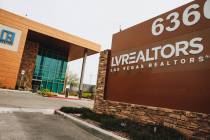Who is responsible for the $500 water bill?
Q: My house is on the corner of Catherine Mermet and Grandmother Hat avenues. I've been there since 2007. From the beginning, the homeowners association said I was responsible for watering the plants on that sidewalk next to my house, which has not been a problem. They are responsible for maintaining the bushes, trees etc. A valve broke and I had a repairman come out to look at it. He said he was not allowed to touch it because the valve, irrigation, etc is the property of the HOA and they have contracted with a landscape company to repair the broken valve. Now, my water bill last month was over $102. This month it's over $548.00. I, of course, have contacted the HOA and a representative said the board would check with the HOA management to see whose responsible, me or the HOA.
A valve broke and I had a repairman come out to look at it. He said he was not allowed to touch it because the valve, irrigation, etc is the property of the HOA and they have contracted with a landscape company to repair the broken valve. My water bill last month was over $102. This month it's over $548.00. I, of course, have contacted the HOA and a representative said the board would check with the HOA management to see who is responsible for the repair.
My next water bill is coming due. What do I do?
A: Your situation is not unusual. There are many associations where the developers tied the water systems of individual homeowners' units to water the landscaping that is part of the common areas maintained by the associations. In your case, you have been watering the area for almost eight years and based upon your email, the association has been maintaining the planter area during the same time. I have seen this situation go both ways.
To find out who is responsible, check the association's covenants, conditions and restrictions. If you find in these documents that the responsibility clearly lies with the HOA, I would recommend that you contact your management company and request a hearing with the board. At this hearing, you can present any paperwork that you have supporting the situation (i.e. water bills, photos, timeline, landscapers report) along with your request.
Working with your association's board of directors and management to obtain a resolution is the best way to handle this. Because your water bill is already due, I would recommend that you pay it to avoid accruing any late charges or disconnection, while working on your request for reimbursement of excess charges. I know that this may not seem to be a favorable option, as a $500 bill is not ideal during the holiday season, but the potential damages that you may sustain from your water being disconnected could be more detrimental.
Also, due to the nature of this issue and its potential urgency, the board may be able to review your claim outside of a board meeting. You can discuss this further with your community manager. Again, reviewing your association's governing documents to determine responsibility is the best place to begin. If they are not clear, or you are still unsure, you can seek advice from your community manager or legal counsel. I hope that you find this helpful and wish you the best of luck.
I hope that you find this helpful and wish you the best of luck.
Q: Our community has water features — two ponds and a lagoon surrounding the pool area, that were built when the community was new. There is a proposal on the table that we remove one or both of the ponds and replace them with desert drought-tolerate landscaping — shrubs, flowering plants, etc. Nevada Revised Statutes 116.330 states, in part: "Installation of drought-tolerant landscaping within any common element or conversion of traditional landscaping or cultivated vegetation, such as turf grass, to drought-tolerant landscaping within any common element shall not be deemed to be a change of use of the common element..."
While I am in favor of this change, the two ponds were a deciding factor when some homeowners purchased a unit in our community, and they have been features that we all like. My concern is that removing common elements, the ponds, is not the same as "traditional landscaping or cultivated vegetation, such as turf grass."
My question is whether we would need to get approval from 51 percent of our homeowners (as stated in our CC&Rs) to remove our common element ponds and replace them with landscaping. Is there something in NRS 116 which states this?
A: You will need to bring this issue to vote by your homeowners as it is definitely a change in use of the common elements. The conversion law pertained to changing the greenbelt areas (i.e. traditional landscaping) of a community to drought-tolerant landscape. From what your email states, your association is attempting to use that conversion law for removing ponds and then installing drought-tolerant landscape.
Barbara Holland is a certified property manager, broker and supervisory certified association manager. Questions may be sent to holland744o@gmail.com.





















